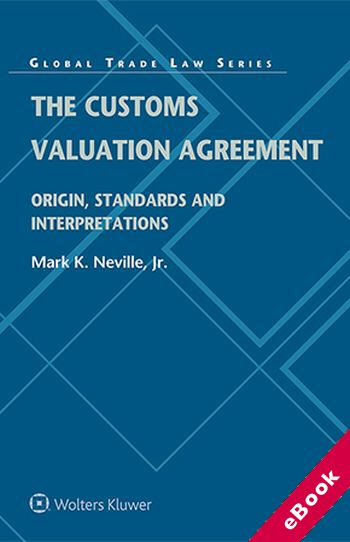
The device(s) you use to access the eBook content must be authorized with an Adobe ID before you download the product otherwise it will fail to register correctly.
For further information see https://www.wildy.com/ebook-formats
Once the order is confirmed an automated e-mail will be sent to you to allow you to download the eBook.
All eBooks are supplied firm sale and cannot be returned. If you believe there is a fault with your eBook then contact us on ebooks@wildy.com and we will help in resolving the issue. This does not affect your statutory rights.
The Customs Valuation Agreement, authored by a world-renowned specialist lawyer in the field, is a highly knowledgeable analysis furnishing the most extensive study of the origins and architecture of the Customs Valuation Agreement and its intersection with transfer pricing norms. Customs valuation is a critical element in the corpus of international trade law. Although the WTO Valuation Agreement 1994 remains unchanged in all material respects and has been adopted by virtually every trading nation on the planet, there are fissures in the system preventing consensus on many contentious questions. This unique book concentrates on diverging views on the nature of the central feature of the Agreement, the definition of the price actually paid or payable (PAPP).
What’s in this book:
Inter alia, the author thoroughly explains differing views on the following questions:
Proficiently, the author analyzes interpretations of the Valuation Agreement as presented in the instruments of the World Customs Organization and the administrative and judicial fora of the United States, Canada, and the European Union.
How this will help you:
This nonpareil book takes an enormous leap toward “real-world” consensus on the daunting questions of custom valuation. Customs and international tax professionals, as well as academic scholars, will emerge from its in-depth coverage with an enhanced ability to discern the logic inherent in the Valuation Agreement, a greater awareness of current trends and their origins in authoritative customs valuation bodies, and improved confidence when approaching customs valuation questions.